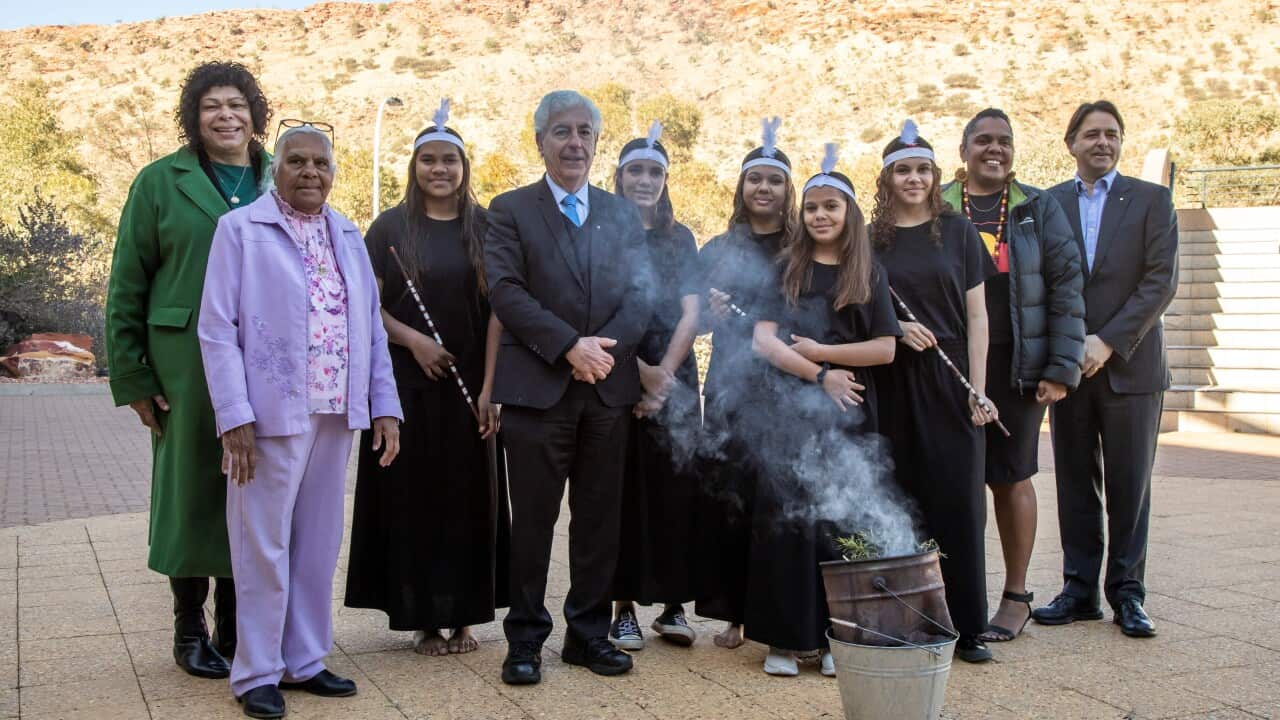The Royal Commission, looking into the way disability services are delivered to First Nations people living in remote areas, has heard from a Northern Territory woman who is unable to access disability services she is entitled to under the NDIS.
*Daisy is a Wurramunga woman living in Tennant Creek and told the commissioners she would like to visit a local dam for some relaxation but doesn’t know if she can access respite services offered to her under the NDIS.
She also told the commission she doesn’t know how much money she’s been allocated under her plan and would like to have a choice about what support services she can access.
The armrest of the wheelchair she was in for today’s hearing was cracked and she said it hurts her to sit in it unless she wears a jumper, which helps.
She said when her motorised scooter was broken, she would have to wait at home until someone could come and push her to the local shop so she could buy groceries.
Unable to keep up with demand
The Royal Commission into Violence, Abuse, Neglect and Exploitation of People with a Disability, which is being held in Alice Springs this week, has been tasked with exploring the barriers First Nations people face in accessing disability care. Some populations such as the central desert community of the NPY lands are so remote, that 26 communities are spread over 350,000 square kilometres.
Some populations such as the central desert community of the NPY lands are so remote, that 26 communities are spread over 350,000 square kilometres.

The disability inquiry's Chair and Commissioners. Source: Supplied
The inquiry will also look at the failure of markets in remote and very remote areas to provide disability services.
The current situation has been described as one where the services that are currently funded are unable to meet demand.
The commission is expected to examine the complexity and bureaucratic nature of the NDIS system and how that is more difficult for Indigenous people to navigate due to linguistic and literacy barriers and disadvantages.
As well as a lack of culturally appropriate services and support for First Nations people with disability in remote and very remote areas.
Census data shows there are more than 66,000 First Nations people living with profound or severe disabilities in Australia.
About 11 per cent live in remote or very remote locations, where client needs can look very different.
The average annual support for First Nations NDIS participants in remote or very remote locations is $96,000, which is 41 per cent more than the average annual support for non-Indigenous NDIS participants.
In-person help
*Daisy also has a son who is disabled and lives 500 kilometres away from access services such as speech therapy and swimming.
She told the commission she struggles to see him and often has to wait to get a lift off someone.
She said she would like for him to know how to use his respite to visit her and for her to do the same.
*Daisy said she preferred to get to know the NDIS staff and see them in person, and found it easier to use the system when there was an NDIS office in her community, which is now closed.
The hearings continue for the rest of the week.



